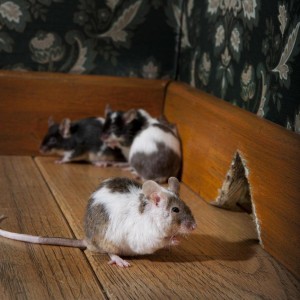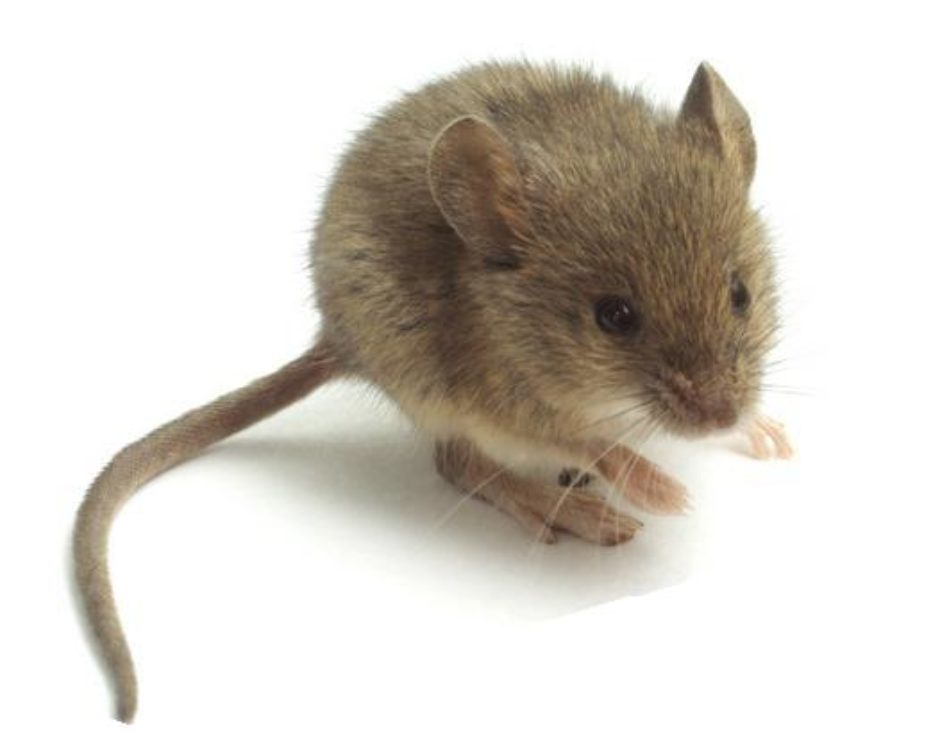 To achieve rodent pest control, you need to know your enemy. Mice are small, food hunting experts with excellent hearing and smell. They are rodents, and share the same scientific order called Rodenita, which is latin “to gnaw”. Like the beaver, the squirrel and your pet hamster, they need to keep their incisors trimmed by chewing. This is a major difference between other mammals and mice, as their incisors grow their entire life, and they need to keep their teeth short or they will die from starvation.
To achieve rodent pest control, you need to know your enemy. Mice are small, food hunting experts with excellent hearing and smell. They are rodents, and share the same scientific order called Rodenita, which is latin “to gnaw”. Like the beaver, the squirrel and your pet hamster, they need to keep their incisors trimmed by chewing. This is a major difference between other mammals and mice, as their incisors grow their entire life, and they need to keep their teeth short or they will die from starvation.
That is why you may see a squirrel chewing your Christmas lights, and having a good time destroying the strand. They will chew wood, electrical wiring, and other soft materials.
Most rodents are small, like a gerbil, but the largest rodent, the capybara, is over a 100 pounds. Rodents have five toes on their back feet, and 4 fingers, and a small, but not full thumb on their front feet. The front “thumb” is more like a pad, to give them stability when they are standing on their front feet.
Rodents are social animals, and like to live together. You can find a group in your attic, with many moms and babies nested close to each other. They will use your food source to fill that attic, if you are not careful.
The mouse will reach its teenage years early-they can be born, and have babies themselves very quickly, at the ripe age of 6 weeks. And, since they are pregnant for only 20 days or so, and can have up to 8 little mice in one birth, you can imagine how productive the mouse can be. Almost always ready to have a litter, a female can have up to 48 baby mice in a year!
That means, if you have 6 mice, you could have over 288 new mice in one year, and over 13,000 in two years….
Scary huh? It is best to always consider this problem something to project manage. It will be your best interest to continue to learn more about mice, to better solve your mouse problem.
Understanding mice is as simple as getting down to their level. Mice are nocturnal creatures, mostly blind, working their way through your home with whiskers, an acute sense of sound and smell. Your mouse is not friendly with other animals in your home, and will be threatened by dogs, cats, and rats. You might have a bat problem in your attic, and that would be a deterrent to your mouse population.
They eat mostly grains, but are not picky. Mice love to try almost anything, and will eat through your hershey bar collection, sampling them all. Males are pretty territorial with other males, so your man mouse will be a fighter. If you see a daytime mouse, chances are you have been away at that time, and they have adapted to your schedule. That is why you might be reading on a saturday afternoon, and your quiet time, will allow a scurry along the baseboard in your living room to the kitchen.
Remember the mouse holes in those comics on saturday morning? That isn’t too far from the truth, but they would be fine with a crack in your baseboard, molding or exchange vent in the furnace. Mice can live up to 98 degrees of heat, but don’t do so well with any temperatures lower than 70 degrees. They like it perfect, and will die of heat stroke in the heat of summer, and the cold of winter. Kind of like the snowbirds you see traveling to florida and arizona in the winter.
Mice live up to 3 years, and have been studied extensively for medical research. They have cancer, and many of the same later in life issues that we have. Temperate climate, is key, as they can die from pneumonia. They have been known to get stuck in greenhouses, and perish, leaving a nasty smell for the returning gardener.
Mice are clean animals, they like to groom themselves a lot. Other mice will help out with this task, which is an ongoing obsession. They will share nests with each other, and huddle together for warmth. They like to be with the family they have, and will fight over mating but not much else.
